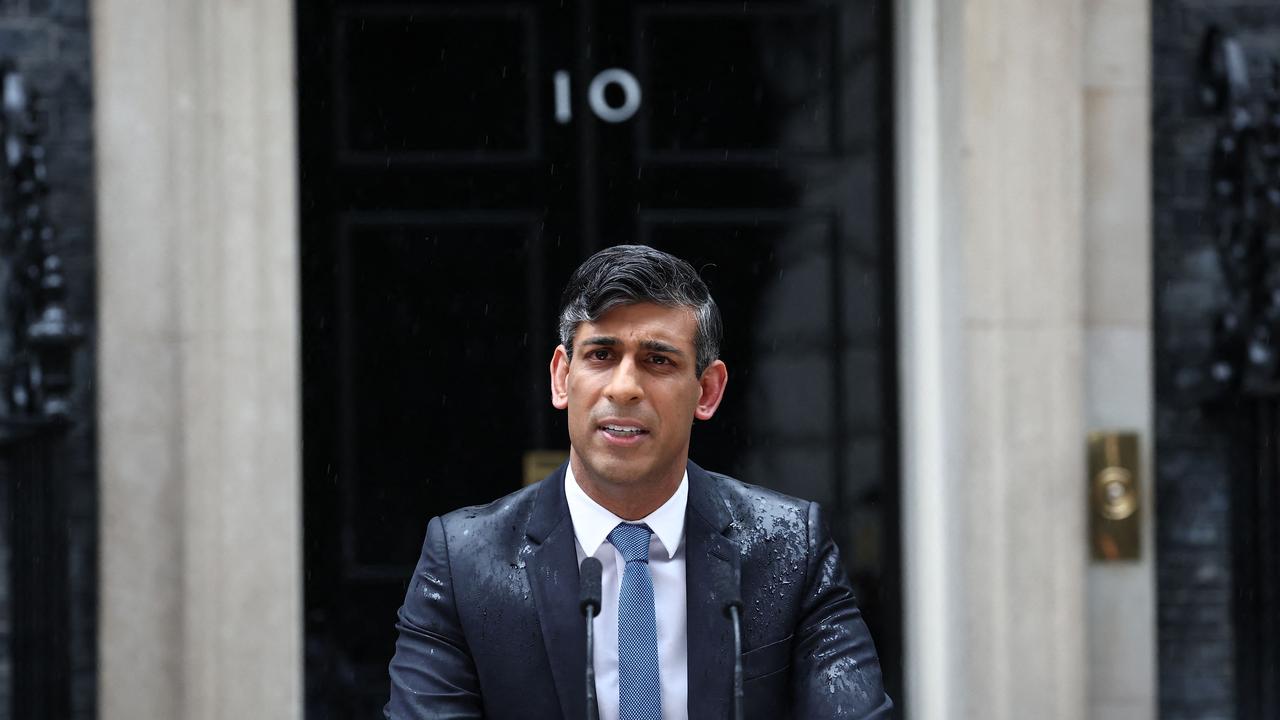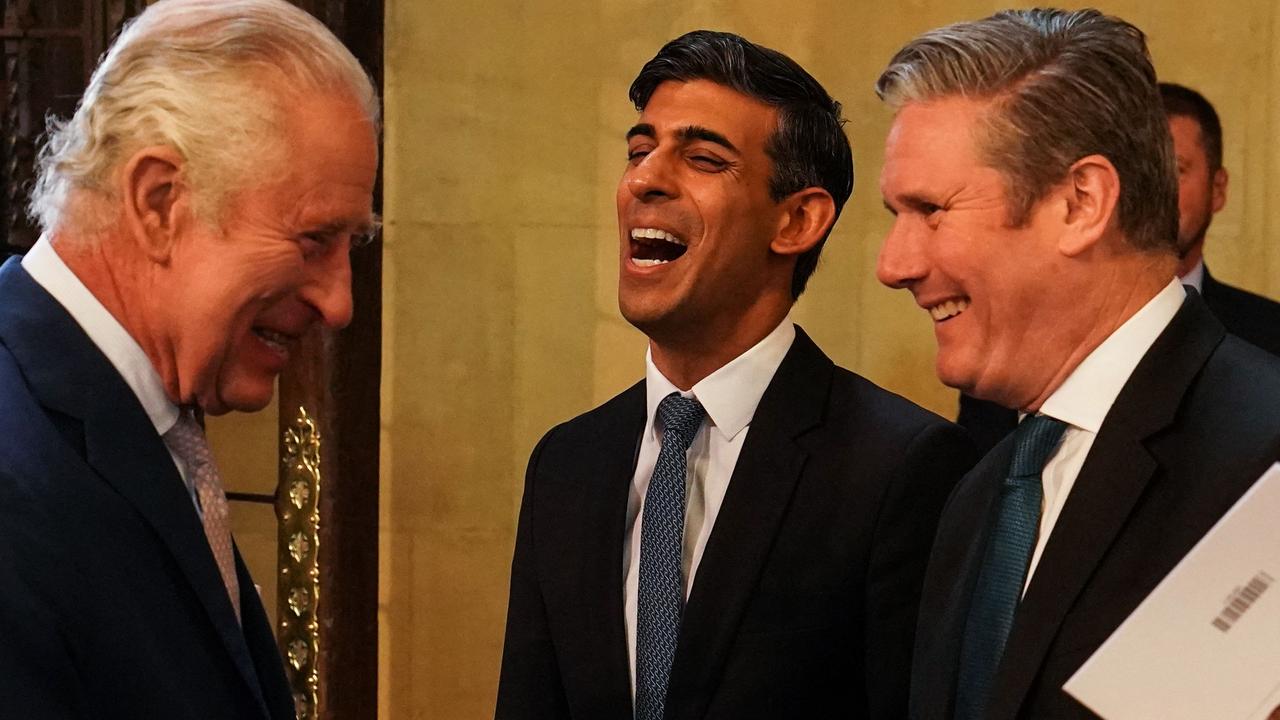
This article is more than
1 year old
The UK Prime Minister has made an unexpected announcement about the next election which could end 14 years of Tory rule.
The UK will go to an election on July 4 in a surprise election announcement months earlier than predicted.
The party of Prime Minister Rishi Sunak is widely expected to lose the election, ending 14 years of Conservative rule which has included the party putting in place the referendum that led to Britain leaving the European Union.
Mr Sunak made the announcement on Wednesday evening, UK time, outside the PM’s official home of Downing Street in central London.
“Earlier today I spoke with His Majesty the King to request the dissolution of parliament. The king has granted this request and we will have a general election on July 4,” Mr Sunak said as it rained on him.
“I hope that my work since I became prime minister shows that we have a plan and are prepared to take bold action necessary for our country to flourish”.
But Labor’s Sir Kier Starmer, the man widely tipped to be the next British Prime Minister, said it was time for change.
“After 14 years, it’s time for change. Stop the chaos, turn the page, start to rebuild. Vote Labour,” he said.

Like in Australia, but unlike in the US, British election campaigns last only a matter of weeks.
The election is for the House of Commons, the lower chamber of the British parliament which is equivalent to Australia’s House of Representatives.
In Westminster, there are 650 MPs, a party or coalition needs 326 MPs to govern.
UK-wide politics is generally dominated by the right of centre Conservatives – similar to the Liberals – and the left of centre Labor Party, with 344 and 205 MPs respectively.
The last UK election in 2019 saw a landslide for the Conservatives under Boris Johnson as many traditionally working class, Labor voting areas, switched parties in the wake of Brexit.
However, a general malaise with the Tories and a lacklustre economy has seen opinion polls turn against the party.
If the Tories are defeated the opposition Labour Party will almost certainly take power. That would lead to Mr Starmer becoming the first Labour prime minister since Gordon Brown in 2010.
Under UK law, an election did not have to be held until January of 2025.
However, Mr Sunak is thought to have made the move due to improving economic conditions in Britain.
It’s expected the Conservatives will try and win over voters with its economic and tough immigration policies.

Wild card in UK election
The third biggest party in the House of Commons is the Scottish National Party with 43 MPs, independents have 17 and the centrist Liberal Democrats are on 15. Northern Ireland has different political parties to the rest of the UK.
One wildcard could be how the right wing, populist Reform UK Party performs. Founded by former MP Nigel Farage, who used to run the anti-EU United Kingdom Independence Party, Reform wants further immigration controls and rubbishes climate change. However, it failed to win any MPs at the last election.
Mr Sunak, the first British Indian and first Hindu UK PM, entered Downing Street in October 2022. He’s been seen to steady the government after his predecessor Liz Truss whose tenure as PM lasted a mere six weeks.
She took over from Boris Johnson who served between 2019 and 2022 but resigned due to a scandal involving gatherings in Downing Street despite Covid restrictions.
Mr Sunak was treasurer in Mr Johnson’s administration.